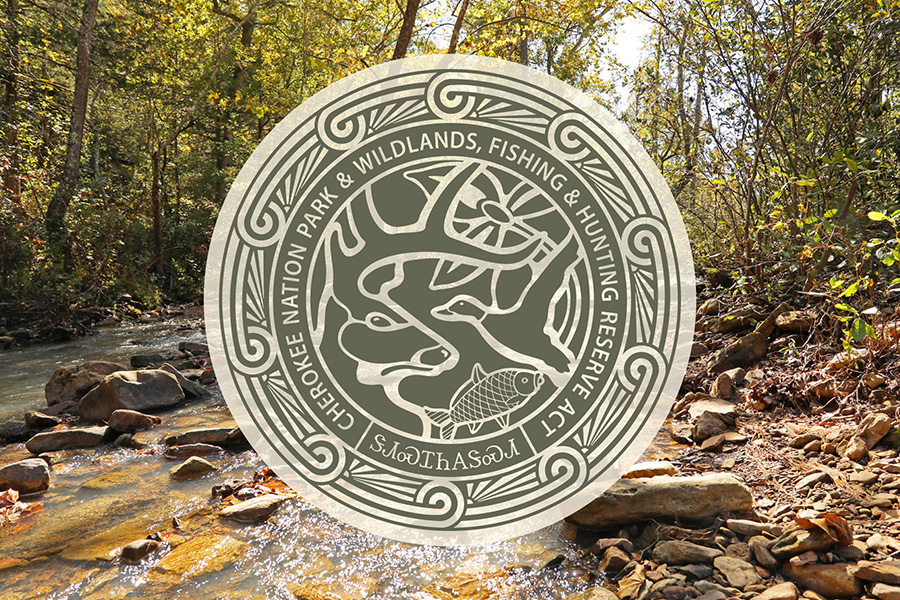
- Details
- By Chuck Hoskin Jr
Guest Opinion. The Cherokee people’s connection to the land and nature has always been central to our way of life. Both to honor our past and to carry on our Cherokee identity long into the future, we must ensure the newest generations have access to traditional plants and know how to use them.
An agreement that our sovereign government recently signed with the National Park Service is a historic step towards this goal. Our unique tribal-federal relationship allows Cherokee Nation citizens to collect plants along the Buffalo National River in Arkansas, a place home to a number of plants that are important to Cherokee culture. The agreement is the first of its kind in the region.
Our connection to the area of the Buffalo River dates back to the early 18th century, when Cherokees were migrating westward due to increasing encroachments on our southeastern homelands. This group of Cherokees, called the Old Settlers, sought to avoid conflict by establishing new settlements west of the Mississippi River before eventually arriving in Indian Territory. During this time, Cherokees continued ways of life that included the use of wild plants for food, tools and medicine. The flora of the Ozarks featured many of same plants they had previously known and cherished in the homelands.
To this day, Cherokees use these plants to support our health and culture, including collecting nutritious food from wild greens, nuts and berries; designing crafts from bushes, trees and cane; and making medicine from leaves, barks and roots. The National Park Service, which manages the river and surrounding land, will permit Cherokees citizens to gather about 75 different types of traditional plants.
For any Cherokee interested in gathering these plants, we will create a registration link on the Gadugi portal and we will submit those names to NPS.
As a positive example of collaboration between a tribal nation and the United States, this agreement is important for all parts of the country. The federal government finally acknowledges that Cherokee people have been caring for lands since long before national parks existed. The NPS is showing great respect for Native traditions and relationship building.
Spearheading this effort was our Secretary of Natural Resources Chad Harsha, as well as the Cherokee Medicine Keepers, a group of first-language Cherokee elders who organized several years ago with a mission to protect and perpetuate traditional Cherokee wellness and language knowledge. Our Medicine Keepers recognize that tribal traditions are uniquely tied to the land and natural resources. They work to sustain environmental knowledge for current and future generations.

That’s why, in a separate executive order, I formally set aside almost 1,000 acres in Adair County to be the Cherokee Nation Medicine Keepers Preserve for conservation. Located near the Bell Community, it is among the most botanically diverse areas within the Cherokee Nation Reservation. The newly protected lands will be managed by the Cherokee Nation Natural Resources Department.
Deputy Chief Bryan Warner and I believe the work of Medicine Keepers is critical, and we hope this dedicated land base for cultural education and environmental conservation will help carry on their efforts for generations.
Cherokee Nation and the Medicine Keepers view stewardship of our land and natural resources as a sacred, long-term responsibility. Together, we will ensure that traditional knowledge is protected and shared with younger Cherokees. As a government and as individuals, we are committed to making sure that our environment is as clean as possible, our cultural plants are protected, and Cherokees of the future have as much or more opportunities to enjoy and learn from nature as do Cherokees of the past and present.
Chuck Hoskin, Jr. is the principal chief of the Cherokee Nation.
More Stories Like This
The SAVE America Act Threatens Native Voting Rights — We Must Fight BackThe Presidential Election of 1789
Cherokee Nation: Telling the Full Story During Black History Month
Jesse Jackson Changed Politics for the Better
Native News Online at 15: Humble Beginnings, Unwavering Mission
Help us defend tribal sovereignty.
At Native News Online, our mission is rooted in telling the stories that strengthen sovereignty and uplift Indigenous voices — not just at year’s end, but every single day.
Because of your generosity last year, we were able to keep our reporters on the ground in tribal communities, at national gatherings and in the halls of Congress — covering the issues that matter most to Indian Country: sovereignty, culture, education, health and economic opportunity.
That support sustained us through a tough year in 2025. Now, as we look to the year ahead, we need your help right now to ensure warrior journalism remains strong — reporting that defends tribal sovereignty, amplifies Native truth, and holds power accountable.
 The stakes couldn't be higher. Your support keeps Native voices heard, Native stories told and Native sovereignty defended.
The stakes couldn't be higher. Your support keeps Native voices heard, Native stories told and Native sovereignty defended.
Stand with Warrior Journalism today.
Levi Rickert (Potawatomi), Editor & Publisher

